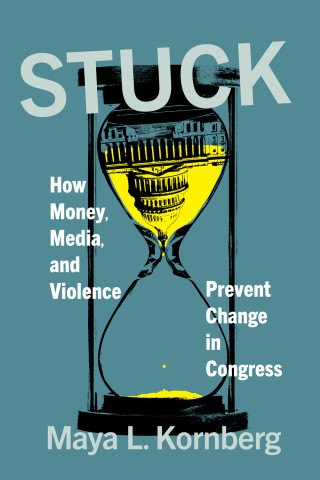
Reviews
This book is well written and, as such, a pleasure to read.
Flawed Logics is an impressive piece of scholarship. Lebovic displays an encyclopedic knowledge of past debates about arms control in the United States.
Lebovic's depictio of logical inconsistency is accurate and will be of interest to advanced students.
Flawed Logics offers an excellent overview of arms control from the Baruch Plan to New START. The volume generates interesting scholarly insights.
Highly recommended to students of all levels of expertise, as well as politicians and members of academia.
Flawed Logics: Strategic Nuclear Arms Control from Truman to Obama by James H. Lebovic [opens] the reader's eyes to the complex and chaotic process of American policymaking during the Cold War... highly recommended to students of all levels of expertise, as well as politicians and members of academia.
James Lebovic's Flawed Logics is a thoughtful, penetrating, and disturbing book, well worth the interested reader's attention. It offers a thorough review and analysis of how American officials and advisers shaped U.S. arms control policies on nuclear weapons in negotiations with the Soviet Union during the Cold War, with brief consideration given as well to U.S. arms control policymaking since George H.W. Bush's presidency.
For anyone interested in a sophisticated history of US arms control efforts, James Lebovic's Flawed Logics provides a fine starting point... Lebovic avoids the quantitative methods, airtight logical typologies, and parsimonious theorizing that dominate much of contemporary international relations scholarship. Instead, he sticks to a qualitative reading of the policy debates over nuclear arms agreements and nuclear strategies within each presidential administration since Harry S. Truman's.
[Lebovic's] book provides a new perspective through which students can have a thorough picture of the history of nuclear arms control negotiations. The book is also of interest to experts and policy makers who would like to deepen their knowledge about the role of beliefs and ideas in the field.
James Lebovic skillfully dissects the opposing viewpoints in the U.S. arms control community during and after the Cold War and demonstrates that both sides of the debate exhibited perversely illogical inconsistencies. The book is extremely well written, well organized, and thoroughly researched.
Book Details
Preface
Introduction: Arms Control and the Power of Belief
1. Initial U.S. Nuclear Arms Control Initiatives: The Truman through Eisenhower Years
2. Early Success at Arms Control: The Kennedy
Preface
Introduction: Arms Control and the Power of Belief
1. Initial U.S. Nuclear Arms Control Initiatives: The Truman through Eisenhower Years
2. Early Success at Arms Control: The Kennedy Administration and the Limited Test Ban Treaty
3. The Era of Bilateral Nuclear Arms Limitations: The Johnson through Carter Years
4. Nuclear Arms Reductions in the Final Cold WarDecade: The Reagan Years
5. Nuclear Arms Reductions after the Cold War: The George H. W. Bush through Obama Years 182
6. The United States and Strategic Nuclear Arms Control: Assessing Intentions, Constraining Capabilities
Notes
References
Index






